Developing analytical thinking Normal Worksheets for Ages 5-8
5 filtered results
-
From - To
Discover our "Developing Analytical Thinking Normal Worksheets" designed for children aged 5 to 8. These engaging and interactive worksheets promote critical thinking skills through fun activities that challenge young learners to analyze information, identify patterns, and make connections. Each worksheet aligns with educational standards and encourages problem-solving, logical reasoning, and creativity in kids. Perfect for use at home or in the classroom, these resources support early childhood education by making learning enjoyable and effective. Explore our collection and help your child build a strong foundation in analytical thinking, setting them up for success in their educational journey!
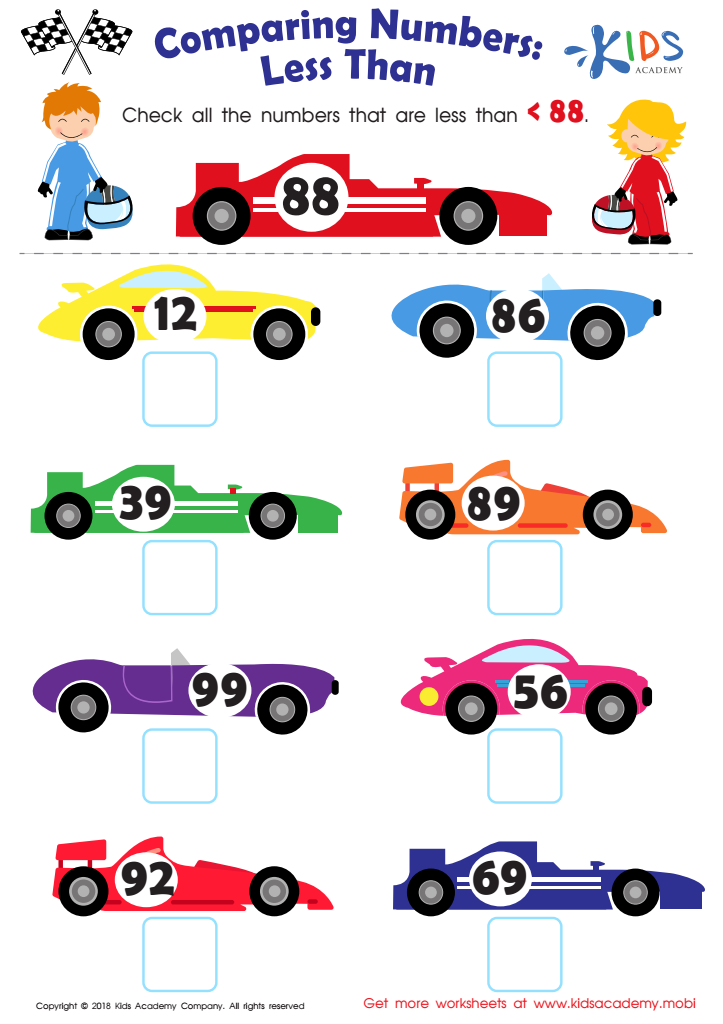

Less Than Worksheet
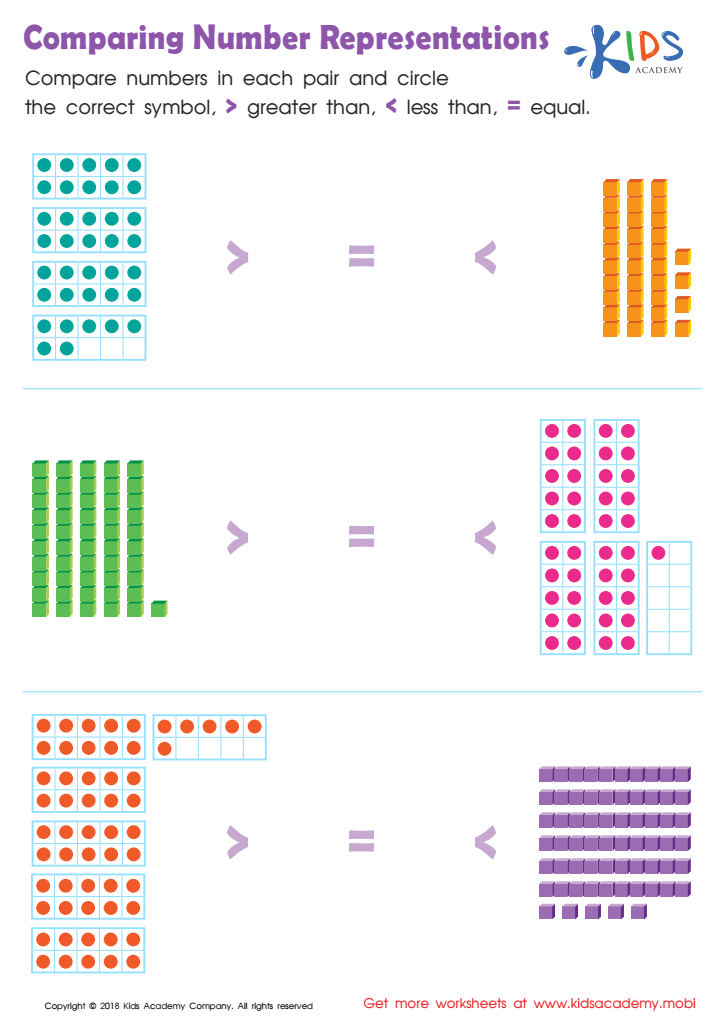

Comparing Number Representations Worksheet
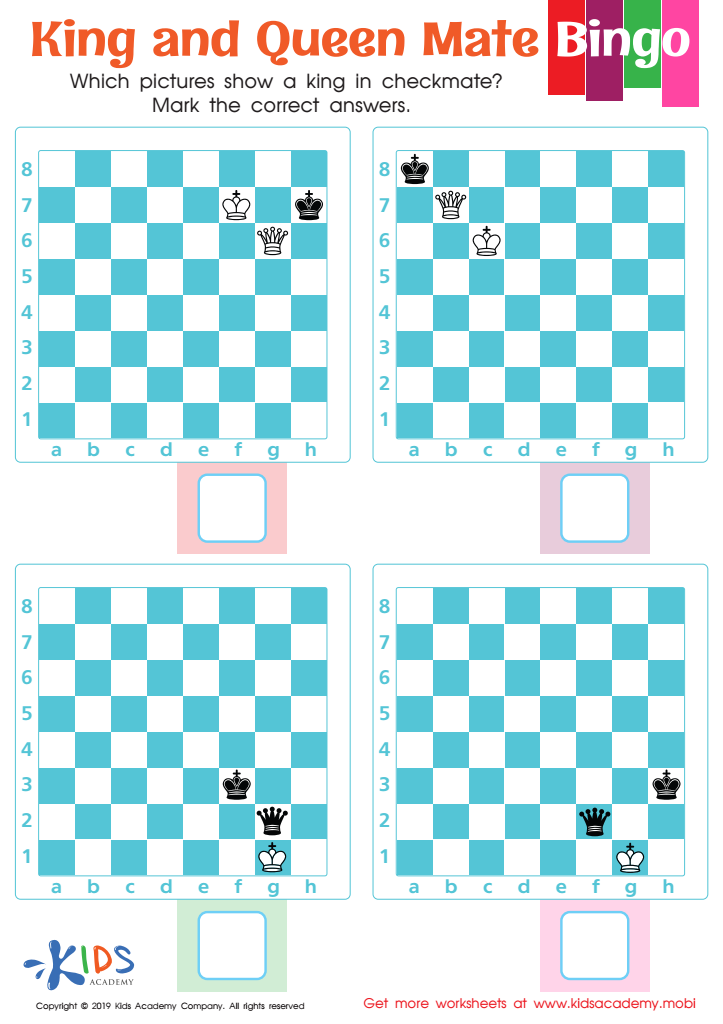

King and Queen Mate: Bingo Worksheet
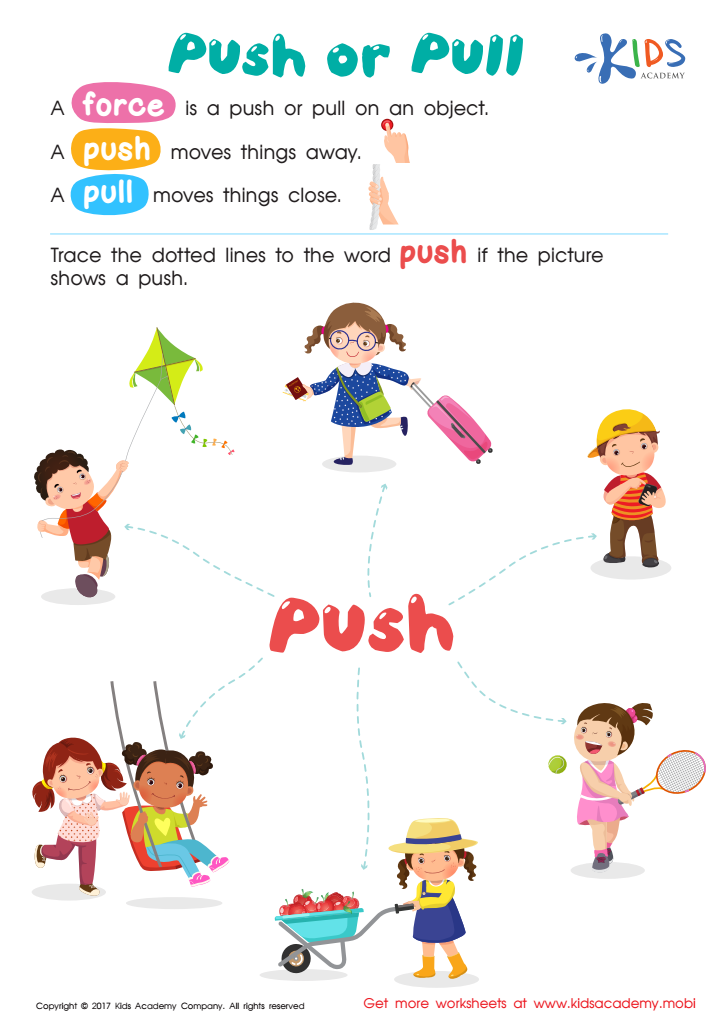

Push or Pull Worksheet
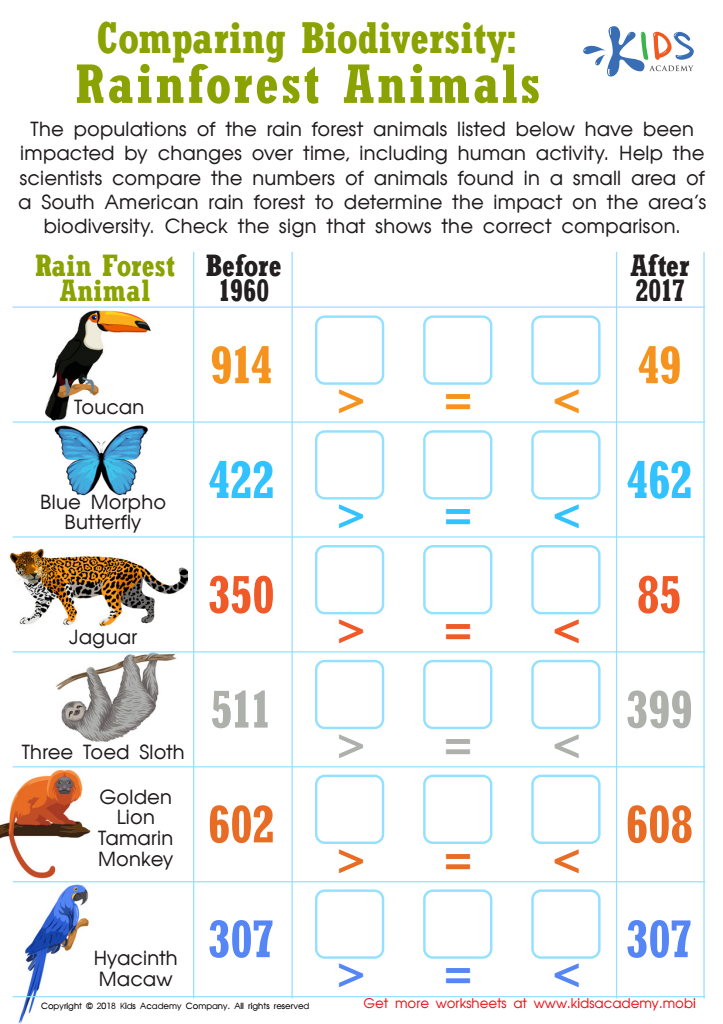

Comparing Biodiversity: Rainforest Animals Worksheet
Developing analytical thinking in children aged 5-8 is critical, as this foundational skill impacts their academic and personal growth. At this age, children are naturally curious and eager to explore, making it the perfect time to nurture their ability to analyze, question, and make reasoned judgments. When parents and teachers focus on fostering analytical thinking, they empower children to approach problems methodically, helping them to understand cause-and-effect relationships, evaluate options, and develop solutions.
Analytical thinking also enhances language skills and comprehension. As children articulate their thoughts and reasoning, they build vocabulary and improve their ability to express ideas clearly. Additionally, encouraging this skill during early development helps students become more formidable problem-solvers, enhancing their capability in subjects like math and science.
Moreover, analytical thinking promotes a growth mindset. When children learn how to analyze situations, they are more resilient in facing challenges and setbacks. This skill fosters self-confidence as they learn to trust their reasoning and decision-making. Therefore, when parents and teachers prioritize developing analytical thinking, they prepare children not just for academic success but for a lifetime of collaboration, creative thinking, and adaptive learning in an increasingly complex world.
 Assign to My Students
Assign to My Students





















